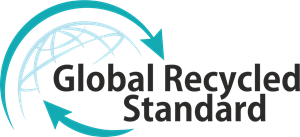Datini, a Karachi-based material sciences company, offers recycled non-woven wool for insulation solutions and more to enhance the functionality and sustainability of textile products.

Approach More Eco-Consciously Through DNon-woven
DNon-woven is specifically designed to craft high-quality felts, insulation, interlining, medical textiles and acoustic panels. All while being environmentally friendly. Made from recycled wool fibers, this product provides excellent thermal regulation, antibacterial properties and mixture absorption. DNon-woven showcases how sustainable practices can be integrated into housing and other industries, enhancing performance while minimizing environmental impact.



Driving Global Change with Sustainable Wool Repurposing
Sustainability
Quality
Innovation
Performance
Versatility
Eco-Friendly . Efficient . Enduring .
Eco-Friendly . Efficient . Enduring .
Eco-Friendly . Efficient . Enduring .
Eco-Friendly . Efficient . Enduring .
Eco-Friendly . Efficient . Enduring .
Be Eco-Conscious
While trendy and affordable, the fast fashion industry poses significant environmental challenges. From excessive carbon emissions to microplastics polluting oceans, its impact on the planet is undeniable. Water waste and energy-intensive production processes amplify the problem, solidifying fashion as a major global polluter.
Carbon Emissions
Fast fashion accounts for 10% of global carbon emissions, according to the BBC. At Datini, we combat this by recycling post-consumer wool and cotton, reducing the need for virgin fibers and lowering the carbon footprint.
Ocean Pollution
Synthetic fibers contribute to 35% of oceanic microplastics. By focusing on natural materials like recycled wool, we reduce dependency on synthetics, minimizing microplastic contamination.
Water Waste
Toxic dyes containing mercury, cadmium, and lead pollute waterways, causing severe health issues. At Datini, we use water free methods to recycle textile waste. This does not only saves water but also mitigates water toxicity.
Adverse Impact
The United Nations ranks fashion as the second most polluting industry globally. Datini addresses this by embracing a circular economy, diverting textile waste from landfills and conserving resources.
Fuel-Intensive Practices
Transforming plastics into textiles demands high energy and releases harmful chemicals like hydrogen chloride. Our approach eliminates reliance on petroleum, opting for alternatives that prioritize environmental well-being.
